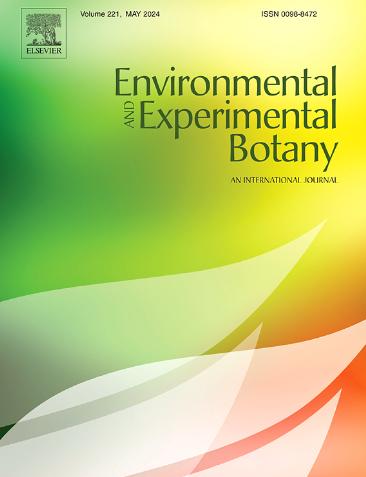PIF4 and phytohormones signalling under abiotic stress
IF 4.5
2区 生物学
Q2 ENVIRONMENTAL SCIENCES
引用次数: 0
Abstract
Abiotic stressors like excessive temperatures, drought, and salinity threaten crop productivity and food security. Molecular mechanisms underlying plants’ acclimatization to environmental stresses are complex, and understanding the intricate mechanisms is crucial for developing agriculture resilience to withstand global climate change. This review focuses on the diverse roles of Phytochrome Interacting Factor 4 (PIF4) in facilitating phytohormone signalling for plant stress tolerance. To better understand the PIF4-mediated responses to heat, drought, and salt stress, we have reviewed data from studies across various plant species. Further, the interactions of PIF4 with gibberellin pathways, auxin biosynthesis, and ethylene and brassinosteriod networks to facilitate growth and development under abiotic stresses are highlighted. Recent data on the functional analysis of PIF4 gene(s) in crops such as soybean, cotton, tomato, and rice suggest its vital role. Overall, this review provides a broad account of PIF4-mediated stress signalling in plants and highlights how its modulation by cutting-edge biotechnology or gene editing tools could lead to the development of resilient crops.
非生物胁迫下的 PIF4 和植物激素信号传导
过高的温度、干旱和盐度等非生物胁迫威胁着作物生产力和粮食安全。植物适应环境胁迫的分子机制非常复杂,了解这些错综复杂的机制对于发展农业抵御全球气候变化的能力至关重要。本综述重点探讨植物色素相互作用因子 4(PIF4)在促进植物激素信号传递以提高植物抗逆性方面的各种作用。为了更好地了解 PIF4 介导的对热、干旱和盐胁迫的反应,我们回顾了不同植物物种的研究数据。此外,我们还强调了 PIF4 与赤霉素途径、辅助素生物合成以及乙烯和铜绿素周期网络的相互作用,以促进非生物胁迫下的生长和发育。有关大豆、棉花、番茄和水稻等作物中 PIF4 基因功能分析的最新数据表明,PIF4 基因起着至关重要的作用。总之,这篇综述对植物中 PIF4 介导的胁迫信号进行了广泛的阐述,并强调了通过尖端生物技术或基因编辑工具对其进行调控可如何开发具有抗逆性的作物。
本文章由计算机程序翻译,如有差异,请以英文原文为准。
求助全文
约1分钟内获得全文
求助全文
来源期刊

Environmental and Experimental Botany
环境科学-环境科学
CiteScore
9.30
自引率
5.30%
发文量
342
审稿时长
26 days
期刊介绍:
Environmental and Experimental Botany (EEB) publishes research papers on the physical, chemical, biological, molecular mechanisms and processes involved in the responses of plants to their environment.
In addition to research papers, the journal includes review articles. Submission is in agreement with the Editors-in-Chief.
The Journal also publishes special issues which are built by invited guest editors and are related to the main themes of EEB.
The areas covered by the Journal include:
(1) Responses of plants to heavy metals and pollutants
(2) Plant/water interactions (salinity, drought, flooding)
(3) Responses of plants to radiations ranging from UV-B to infrared
(4) Plant/atmosphere relations (ozone, CO2 , temperature)
(5) Global change impacts on plant ecophysiology
(6) Biotic interactions involving environmental factors.
 求助内容:
求助内容: 应助结果提醒方式:
应助结果提醒方式:


